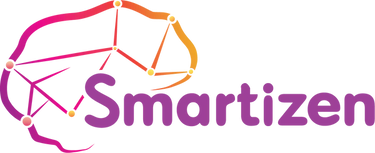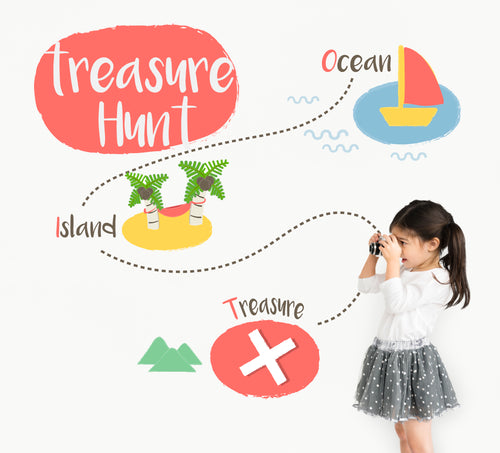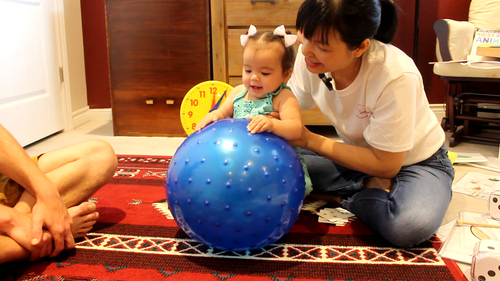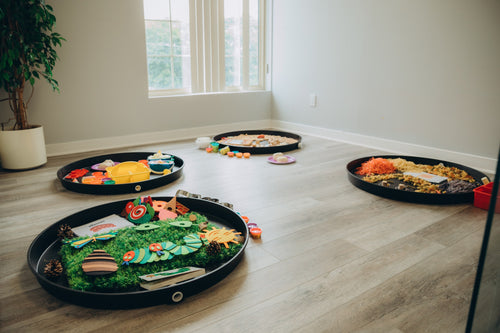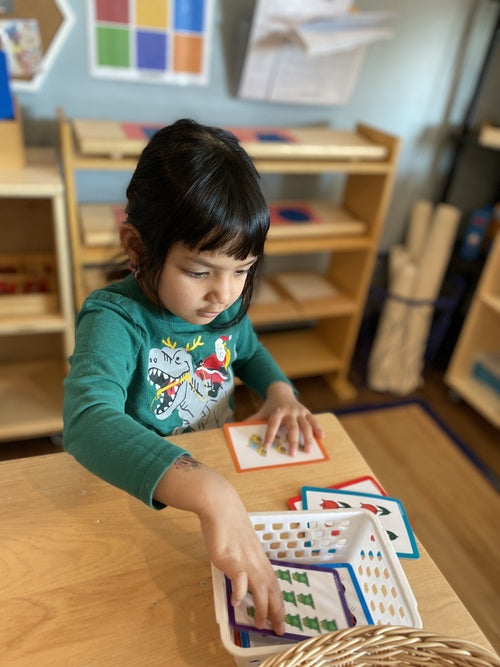Early learning often sparks debates and misconceptions, leaving many parents unsure about how or when to begin teaching their little ones. Modern research in child development has shattered outdated beliefs, showing us that babies are not only capable of learning but thrive when provided with meaningful early experiences. Let’s explore and debunk some of the most common myths surrounding early childhood learning.
Myth 1: Babies Are Too Young to Learn Anything
The Reality: Learning Begins Before Birth
Did you know that brain development starts in the womb? A baby’s brain forms billions of neurons before birth, but the critical connections between these neurons are built during the first three years. With 80% of brain grows before 6, this period is a window of opportunity, where a baby’s brain absorbs information through listening, seeing, touching, and tasting at an incredible rate.
Neglecting stimulation during this time can lead to “synapse pruning”— brain connections get cut off - a concept researchers often describe as "use it or lose it."
Pro Tip: Try simple sensory activities like introducing contrasting colors, playing soothing music, or narrating your day. These small actions create lasting impacts on your baby’s cognitive growth.
Myth 2: Babies Can't Learn Until They Can Talk
The Reality: Language Development Starts Early
Language acquisition begins long before a baby says their first word. Babies are natural listeners, soaking up vocabulary and tone through interactions with caregivers. Speech, songs, and even flashcards can help develop the neural pathways essential for language learning.
At Smartizen, we introduce our little learners to 250 flashcards on different topics in 1 session—this broad exposure equips them with a rich vocabulary foundation. Even if they can’t articulate words yet, their brain is storing these inputs for later use. Yes, if you want your child to speak a foreign language, do it before 6!
Fun Activity: Play a “name and point” game with your baby using objects in your home. It’s a simple way to connect words to their environment while bonding.
Myth 3: Let kids be kids, don’t stress them out with learning
The Reality: Play-Based Learning is Powerful
There’s a misconception that early learning means rigid lessons, but in reality, it’s all about fun and exploration. At Smartizen, we create engaging sessions through sensory games, interactive reading, and educational toys tailored to different learning styles, speed play and memory training for right brain optimization. These activities foster curiosity, motor skills, and problem-solving abilities—all while making learning feel like play.
Tip for Parents: Incorporate reading before bedtime, or flashcard play after meals 3 times a day, babies will soon realize that those are part of their daily routine. Learning now is fun and as important as napping/eating. You’re planting seeds for a lifelong love of learning! Access to our free printable flashcards here if you like to teach babies at home.
Myth 4: Misconceptions About Milestones
Many parents rely on milestone charts, believing certain skills should only be introduced at specific ages. While these charts are helpful guidelines, they sometimes limit the idea of early exposure. Babies are products of their environment—if you introduce a second language, math concepts, or music early, they’re more likely to excel in these areas as they grow. Some babies at 3 already can name all planets or dinosaurs because they were taught and have been reading books about them. Same things apply to any subject. Parents are the first teachers.
Example: A child who hears multiple languages early on may naturally acquire multilingual abilities, thanks to the brain’s adaptability in early years.

Why Early Learning Matters
The first six years of life are a critical period for shaping brain architecture. Consider these benefits of early learning:
- Boosted Cognitive Development: Early exposure builds neural connections for problem-solving and memory.
- Improved Language Skills: Rich vocabulary and interactive communication set the stage for effective speech.
- Positive Learning Habits: Fun, engaging experiences foster curiosity and a love for learning.
Imagine, what if... your baby could be introduced to a mini-library before the age of 6? What if they could develop a photographic memory, learn multiple languages (Mandarin and French for babies), or build early problem-solving skills? These possibilities become reality with the right foundation. The next generation will also benefit from those advanced babies.
Supporting Research
Studies from organizations like the National Association for the Education of Young Children (NAEYC) highlight the importance of engaging babies in meaningful interactions. The goal isn’t to pressure children but to optimize natural opportunities for growth. By starting early, parents help set the stage for academic success and emotional resilience.
Ready to Start Your Baby’s Learning Journey?
At Smartizen, we specialize in designing play-based programs that cater to your baby with age-opportiate activities. Whether it’s sensory play, Montessori practical life skills, memory training, music, or language exposure, we’re here to support your family in nurturing a lifelong love for learning.
Contact us today for a free consultation OR explore our free printable flashcards to get started at home!
